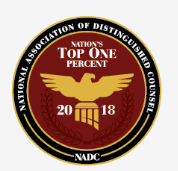Carl Ceder, Attorney at Law - Travel Enthusiast
Original Interview link located here: http://www.simandan.com/?p=15138
Carl David Ceder is a travel enthusiast from Austin, Texas, who lives in Plano, Texas. He is a licensed practicing attorney, and attended school at The University of Texas at Austin, and The University of Houston Law Center. In this interview he talks about his travels around the world and the things he has learned experiencing new cultures and civilizations.
Traveling has been your passion for a long time. How did it all start?
I put a lot of energy and time into my studies in school. I did particularly well in high school, graduating salutatorian and 2nd in my class out of 436 students. I also did well at The University of Texas at Austin, graduating in 3 years from the prestigious McCombs School of Business. I then worked in the finance industry for Goldman Sachs before deciding to pursue obtaining a law degree. I then matriculated into law school because I yearned to obtain more education, and graduated with my Juris Doctorate in only 27 months. At this point, I had always tried to do everything I could to accumulate knowledge and understanding. However, I felt deep down there was more to learn in this world. Not satisfied with only the traditional classroom learning I had gone through at this juncture, after I took the Texas Bar Exam in February of 2008, I set out on a journey that would span over 20 countries, over a time-period of approximately 7 months, with a course that would circle literally around the globe. Traveling like this is not very common among people in the United States, and I felt many of my friends and relatives curiously wondered what my objective was in choosing to embark on a journey such as this. I learned I passed the Texas Bar Exam while I was on a beach in Thailand. Most of my colleagues and friends were either working somewhere, or trying to find employment. Honestly, this was the furthest thing from my mind.
You’re a licensed attorney who’s spent so many years in the classroom. Then you took off. What made you do it?
As I stated before, I spent many years of my life learning as much as I could in the classrooms. I tried to be proficient in a wide range of subjects, and tried to take as many challenging classes and engage with as many interesting professors as I could. I have always been interested in reading all forms of books and literature. I have always wanted a strong mastery of knowledge and understanding. I felt attending law school would help achieve the pinnacle of this goal. However, after graduating and obtaining my law degree, I yearned for learning something more. I realized that there is only so much one can learn in a classroom from a professor, and/or from reading, studying, and analyzing different books. After coming to this understanding, I then set my sight on traveling and seeing as much of the world as I could – with the specific goal in mind of doing everything possible to experience firsthand a variety of cultures and people from many different countries.
What was your travel itinerary?
I started out in Southeast Asia. I always wanted to travel to Thailand, so I spent a month traveling all around this region. I especially loved Bangkok – and how many interesting activities are there for one to pursue. I always enjoyed diving in Ko Toa – one of the islands known for having very clear and blue water. It is perfect for diving.
I then proceeded North from to China, first arriving in Hong Kong. I wanted to see firsthand what “communist” China was like – as the only vision I had was what I had been taught in school from textbooks and teachers. Hong Kong is much different than the mainland of China. Hong Kong, in fact, it is sort of like a Eastern version of New York City. Mainland China is nothing like I would have expected – and is far from what our history books teach. While it is communist, in theory, they do not prohibit freedom of thought and expression as much I would have thought before personally experiencing the culture. They really only try to ensure there are no public uprisings against the government, and strongly discourage any large public gatherings of any sort. As long as this is not as issue, most people there are free to do pretty much whatever they want, including in pursuing different types of professions, and with practicing different forms of religion.
After spending several months in (what is traditionally known as) the “Far East,” I then proceeded to the “Middle East.” I traveled and visited Abu Dhabi, and was amazed by its wealth and prosperity, I then traveled and explored everywhere in the Middle East, initially starting in Egypt, visiting the Pyramids outside of Cairo, floating down the river Nile, climbing up Mt. Sinai, and visiting the tombs of the Pharaohs (in a hot air balloon, in fact) in the Valley of the Kings in Luxor. One interesting thing that occurred while in Egypt is that I met Jude Law, the prominent actor, at the Cairo Museum. He was very polite – and I told him how much I admired his movies. It was a strange coincidence, and something I will never forget. He was with his son touring the museum, and showed traditional British charm and politeness, even to a perfect stranger such as myself (though there were not many other Westerners around at the time).
I also went diving in the Red Sea near Aqaba in Jordan, and also explored the ancient city of Petra, which is carved out of rock. I then traveled into Israel, first entering in Tel Aviv. Tel Aviv is a very progressive city, and was amazed at how much it resembled many Western cities. I then took a tour of the “Holy Land” – and traveled all around Israel. I was moved when visiting the ancient ruins of Masada, where a multitude of Ancient Israeltes fought the Ancient Romans in an attempt to regain their independence as a sovereign nation. I traveled to Jerusalem, and was moved to sit amidst the Mount of Olives that looks out over the expanse of the city. I visited Palestinian occupied Bethlehem, and found it very enlightening to see the difference in living conditions in the areas occupied by the Palestinians compared to the other segments of Israel
I then traveled to Athens, Greece, where I met up with a childhood friend of mine, and we joined a trip where we traveled by sea in a boat to over 10 of the Greek islands, amidst the blue waters of the Aegean sea. I then traveled alone to Patmos, Greece, where it is believed that John, from the New Testament Bible, received the Revelation. I wanted to see for myself what the island looked like, and what surroundings John must have been immersed in when he had such an experience. I then traveled through almost the entirety of the country of Turkey – and as such, I believe in retrospect, this portion of my adventure was perhaps my most favorite part of my entire journey.
I entered into Turkey in the port of Bodrum, and undertook extensive diving in the city with a dive group located there. I then traveled to Kas, Turkey – where I had heard the diving was the best in all of the Mediterranean Sea– and received my Advanced PADI diver certification there.
I then heard rumors of an undeveloped city called Olympos, in the middle of mountainous rock, untouched my mainstream civilization. The only way to travel there was by routing and transitioning through several buses, which traveled through beaten and worn dirt roads and back pathways. Once I arrived there, I realized it was a hidden gem of beauty – truly untouched by commercialism and mainstream tourism. Most people there live in huts carved within the inside of tall trees. It was a very small community of travelers living there, and the lifestyle was very similar to that depicted in the movie “The Island” with Leonardo DiCaprio.
I quickly joined a group of Turkish rock climbers, many of whom had climbed with the Turkish Olympic team. I soon realized I paled in comparison to their superior climbing skills. On one occasion, we did something called “Deep Water Soloing” – where you basically rock climb out over water, without a rope or a harness, then fall back into the water when you cannot climb any further. The highlight of this was how, at one point, I ascended to a peak height of over 300 feet. It was actually on top of one of the mountains, and I resolved to myself to jump into the water from this towering height. It was perhaps not the most intelligent of things I have ever done in my life – the contact hitting the water felt like a large 18-wheeler truck ramming into the jaw. Also, as I hit the water, I soon realized when I climbed into the boat that the jarring contact had ripped my shorts through the middle seam. It was a bit embarrassing! This is not something I would ever want my own precious son to do, to say the least.
After leaving Olympos, I then traveled North into Turkey and visited the area known as Cappadocia, which has wonderous rock formations, and “fair chimneys” – which actually served as the inspiration of the child’s television show, Fraggle Rock. It was surreal personal observing the numerous ancient ruins there, and viewing all of the writing on cave walls from early civilations. I then traveled to Istanbul, Turkey – and loved being immersed in the variety of culture that is present there, as it is truly known as the place where the “East meets the West.” Istanbul has a variety of activities for any traveler to enjoy, and I perhaps enjoyed Istanbul most of all of the big cities I visited.
I then traveled to London, England, and did a traditional “backpacking” route – visiting the United Kingdom, Germany, Italy, France, Sweden, and the Netherlands. My family, many generations ago, immigrated from Sweden, and I wanted to visit the place where they originated from. Stockholm was perhaps the cleanest city I visited.
The highlight of this portion of the trip was visiting Interlaken, Switzerland. Interlaken is a place for travelers who have an interest in extreme sport activities. I thoroughly enjoyed ice climbing on a glacier located on a high altitude mountain, doing a “canyon swing” above rushing waters of a swirling river (multiple times), whitewater rafting, and other activities similar to this. Here, many “backpackers’ stayed at a hostel called the “Funny Farm” – where you stay in bunk-like quarters and plan different extreme activities with other like-minded individuals from all across the world. It was an amazing experience to say the least!
I ended my travels in Amsterdam. While I did not engage in any of the traditional activity that is legal there (but illegal in the United States) – I did enjoy visiting the city, especially the beauty of the water canals and the Museum District. I visited the house where Anne Frank lived, the Van Gogh Museum, and enjoyed all of the arts and culture the city had to offer (while also very much enjoying the opportunity to observe some of the other activity that actively goes on there!).
What were the three most amazing places you’ve visited?
The most amazing places I visited were Thailand, Turkey, and Interlaken, Switzerland. If I could retire anywhere in the world, it would be in Thailand. Whatever activity one wants to pursue, you can freely engage in it in Thailand, and can do so at a relatively inexpensive price. I also loved Olympos, Turkey. There, it seemed as if time stood still, as it was almost totally untouched by traditional tourism. You have to firmly commit yourself to just ensure you will get there, as you have to traverse through a veritable maze of bus routes and charts, forging down beaten and broken paths, and through dirt roads. I remember just a small rickety van was the vehicle that was the final one that delivered us down the last leg of the trip before arriving at Olympos. Once there, you have to go down narrow rocky paths to get to the ocean, and you feel totally insulated from traditional society and life.
Interlaken, on the other hand, was wonderful because if you like an adrenaline rush – you can find just about any activity you want that will get your senses stimulated and your blood flowing.
Which culture impressed you the most? Why?
The culture that probably impressed me the most was in Thailand. You can pursue any activity you want there, and you can do it relatively inexpensively. As well, they value tourism to a large degree, knowing how high their tourist revenues generate. As such, the Thai people do their absolute best to ensure tourist stay safe and are happy with their stay. As well, and this is true in many areas outside of the U.S., time simply doesn’t move in the same fashion – it moves at a much slower rate. There is no need to get in a hurry, you should enjoy life and not be in a rush to move things in life. Other cultures put a very high emphasis on being able to take the time to soak in different experiences – and frown upon the idea of rushing through a vacation. I think this is a characteristic that has been lost in American life for a very long time as time has passed, as we promote and encourage work productivity above many other aspects of life.
What three recommendations would you give to people who want to see the world but are still afraid to get out of their comfort zone?
The three recommendations I would give to others who want to see the world would be to: 1) just jump in and do it, start traveling, and go somewhere different and stray away from the norm; 2) travel outside of Northern America, and optimally plan to visit a wide variety of places and countries (even continents); and 3) take at least 3-4 months to complete your travels, optimally 6 months, and I would consider, if one has the budget, to travel as long as an entire year. It should be a once in a lifetime experience – and so you should not rush through it. You should try to experience as much adventure, culture, and life as you possibly can. You can’t do this by rushing through it, and certainly not if you don’t spend enough time doing so, or traveling to enough different locales.
I remember while I was on a beach in Thailand, I came across a book written by a man from the U.K. titled “I Want to Go Again!” It was his detailed experience of his 2-year travel period he journeyed with three of his best friends. I found the book particularly poignant to my trip, as I was doing the same thing (albeit for not quite as long of a period of time). I soon realized how much other Western countries, such as New Zealand, Australia, Canada, and the United Kingdom – encourage and promote the experience of traveling. In England, many students that are in what they call “University” – which to us would be the college years – actually have what they term as a “Gap” year. It is an entire year where, after their 2nd year of study, they spend an entire year traveling around the world experiencing different cultures. I met a worker from Australia, and he said companies there routinely give employees a month, or more, off for vacation for those who want to travel. In the book “I Want To Go Again” – the writer discussed how he told the employer he worked for his intention of traveling for two years, and he mentioned how his boss was utterly delighted, and even gave him a raise, and overtime hours, to help him save money for his trip. If one were to do the same here in the U.S. – I think it would be fair to say that you would be given your pink slip immediately. It is just not deemed an appropriate way for one to expend their time and resources. When Americans do travel, it is usually to somewhere within the continental United States, and if it is out of the country, most likely to the beach cities of Mexico. My experience told me that this narrow way of thinking limits the perspective one can have on life. You can only learn so much from classrooms, from professors, and from books. You learn something entirely different when talking to native people, visiting certain sites, and taking the time necessary to immerse yourself in cultures different than your own. I am going to highly encourage my son to do the same when he is of age. To me, it is as important, and perhaps even more so, than traditional schooling is.






















